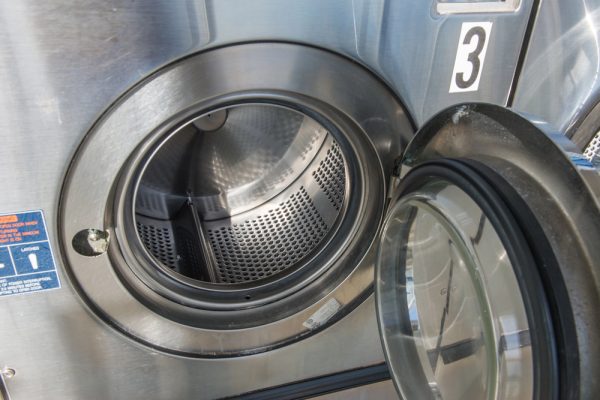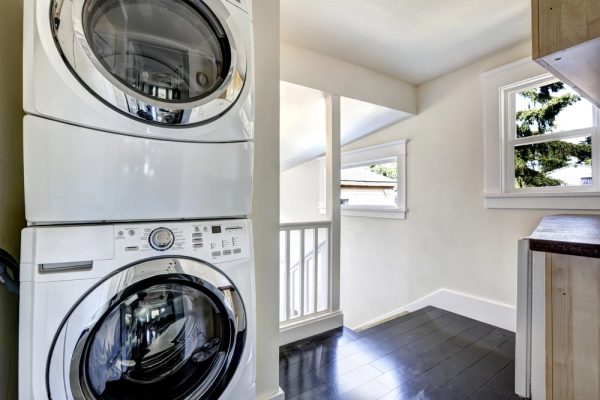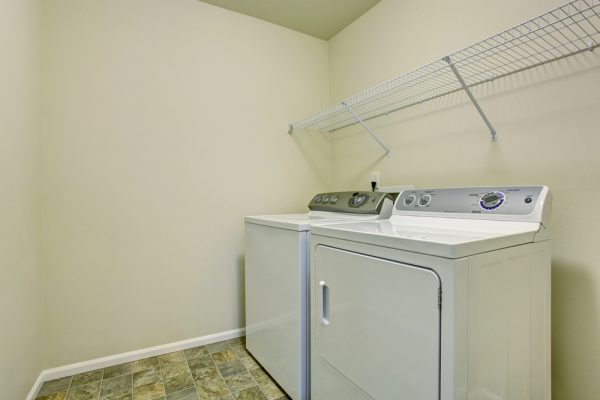Enhancing Rental Properties with Efficient Laundry Facilities
When I was viewing my current apartment for the first time, before I had even seen a rental agreement, I was elated to learn that use of the onsite laundry facility was provided free of charge. It was doubly good news: if I were to live there, I wouldn’t have to get in my car and drive to a laundromat to wash my clothes, and (bonus!) I wouldn’t have to pay a dime to use the washing machines and dryers located right there at the apartment complex. Ultimately my decision to sign the lease was based on a number of factors, but the rental property laundry arrangement figured prominently in that process, and it will certainly factor into my decision whether to renew my lease next year (spoiler alert: I probably will).
This is not to suggest that you, as a property manager, should provide free laundry services at all of your properties (it still costs money). I only mean to demonstrate that laundry is important to every potential tenant who comes your way, and therefore it is something all landlords should carefully consider.
Setting Up Communal Laundry Rooms in Apartment Complexes
If you choose to provide a laundry room for the tenants at your apartment complex, you’ll first need to make a decision about where to source the necessary equipment from. (For those of you who manage single-family homes, hang on! We’ll get to you a little later.) You can either purchase or rent washing machines and dryers yourself and make them available to your apartments’ tenants, or you can enter an agreement with a laundry room equipment vendor.

Should You Purchase or Rent Laundry Equipment?
Purchasing your own laundry equipment obviously entails higher upfront costs, but it also grants you much more control once you’ve installed them. If you do decide to charge your tenants for use of the laundry facilities, you won’t be forking over any of those profits to a vendor, and you’ll be able to set the prices yourself. Of course, the downside to going it alone is that as your equipment gradually degrades from wear and tear (or costly user error on behalf of your tenants), you will be solely responsible for all upkeep and repair costs. If you go this route, make sure to integrate proper protections into your lease agreements, so that if a tenant does happen to damage your equipment the cost won’t sit on your shoulders alone. If you’re seriously considering overseeing installation and maintenance on your own, but have questions about profit expectations and how much to charge for the use of your facilities, we recommend checking our guide to laundry prices and consulting Buildium’s detailed guide to estimating income per load and monthly average revenue per load.
The other option is to bring in a vendor to oversee installation and maintenance, taking the bulk of the responsibility out of your hands. This will likely require you to sign a multiyear lease, and any profits generated through the use of the facilities will be divvied up between you and the vendor.
Regardless of which route you take, it’s important to remember that you’ll want to set out clear rules and guidelines regarding things like hours of operation and equipment use expectations, which also means that you or someone is going to have to enforce those rules. Failing to do so can lead to disgruntled tenants or costly repairs.
In-Unit Rental Property Laundry: Pros and Cons
Every renter would obviously prefer to be able to do their laundry without having to leave the comfort of their house or apartment, and if it’s a tenable option for you as a landlord, it naturally equates to higher rents and happier tenants. In fact (perhaps as a result of the widespread lockdowns at the height of the COVID-19 pandemic), in-unit washer and dryer machines have become increasingly desirable and sought after. According to a 2022 report from the National Multifamily Housing Council, 92 percent of renters are interested in some form of in-unit washer and dryer, and are willing to pay upwards of $50 per month for it.
Depending on how large your rental properties are, you may be able to provide traditional, full-sized machines to every tenant, but if you manage a complex with many units, or the kinds of smaller townhomes that are common in heavily populated urban areas, this may not be an option.

If you are able, and do decide to provide rental property laundry equipment within each of your properties (whether single-family homes or individual apartments), you’ll need to address many of the same concerns related to communal laundry rooms. Even small washer and dryer combos (or those that can be stacked on top of one another to save space) can cause the water and electricity bills for a single apartment to skyrocket, and so if you don’t already stipulate that the tenant is responsible for those utilities, you may want to consider doing so.
Also important is whether the machines you plan to install are noisy or produce considerable vibrations. The last thing you want is an inbox full of emails from annoyed tenants complaining about the rattling laundry machines in adjacent apartments. Exercise due diligence when researching in-unit washers and dryers: read reviews, look for online videos of the machines in use, and (if possible) see if you can find a floor model in a brick-and-mortar location, so you can actually lay eyes (and ears) on the product. If budget or some other constraint prevents you from purchasing a quiet machine, consider installing some form of soundproofing material to at least dampen the noise and vibrations, and include a provision in the lease agreement that restricts usage of the machines to daylight hours.
Lastly, pay especially close attention to potential issues related to safety, accessibility, and liability. Tenants with disabilities will need to be able to access the machines, so take care to ensure that they are installed in fully-accessible areas of the property, and that they are situated at an appropriate height. It is your responsibility, not your tenant’s, to make sure that the machines are installed correctly and that they are safe to use, and in the event that the property is damaged or a renter is injured, you’ll certainly want to have liability insurance to cover the ensuing costs.
Renting Washers and Dryers in Single-Family Homes
Recently some owners of single-family homes have begun to rent out laundry machines and driers to their tenants. Considering the fact that many renters in the market for single-family rentals have their hearts set on doing laundry at home, it’s actually a fairly logical means of securing an additional revenue stream while simultaneously meeting the needs of your tenants, but of course there are extra considerations to account for if you go this route.

First, you’ll want to research local and state laws to get a sense of what will be required of you. Even though you would likely end up having the tenant sign a separate document that is bundled into the rental agreement, in effect you would be entering a different sort of business arrangement by renting out a washer and dryer. Therefore you may need to secure a business license or permit to legally be able to do so.
Aside from that, you’ll need to consider most everything else we’ve talked about so far in this article, including the cost of utilities (and who’s responsible for them), safety, maintenance, accessibility, and liability. Crunch the numbers and find out if you can integrate laundry machine rentals into your property management business, as it could prove to be a valuable ancillary revenue stream.
Choosing Not to Provide Rental Property Laundry Services
So let’s say you’ve read this far and, for whatever reason, you’re still not sold on providing any kind of laundry services to your tenants. Even if you decide against a laundry room or the installation of in-unit machines, there are still ways you can appeal to renters with laundry on their minds. Research nearby laundromats and feature their addresses, rates, and locations in your promotional materials, and consider providing a gift card or laundromat credit as part of a resident benefits package. You never know: it may be just enough to sway those renters who are on the fence.
Additionally, be aware that if you don’t provide any rental property laundry machines, tenants may try to install their own small laundry machines and dryers. Monitor utility bills closely and keep an eye out for sudden spikes in water or electricity usage, as that could indicate that the renter has begun using a stacked washer and dryer or a small washer and dryer combo that they have installed themselves. Also, include a provision in your rental agreement stating that tenants are forbidden from installing them without your permission. A quick search on the internet will yield many a nightmarish tale of the disasters and pitfalls of shoddily installed laundry equipment.
Regardless of whether you provide laundry at your rental property, laundry will always be an issue at the forefront of your tenants’ minds, and so it should be at the forefront of your mind as well. Are you now wondering where you can buy some affordable washers and dryers for your new equipment rentals? Let us know. We offer appliance repairs and replacements.
Anything found written in this article was written solely for informational purposes. We advise that you receive professional advice if you plan to move forward with any of the information found. You agree that neither Lula or the author are liable for any damages that arise from the use of the information found within this article
